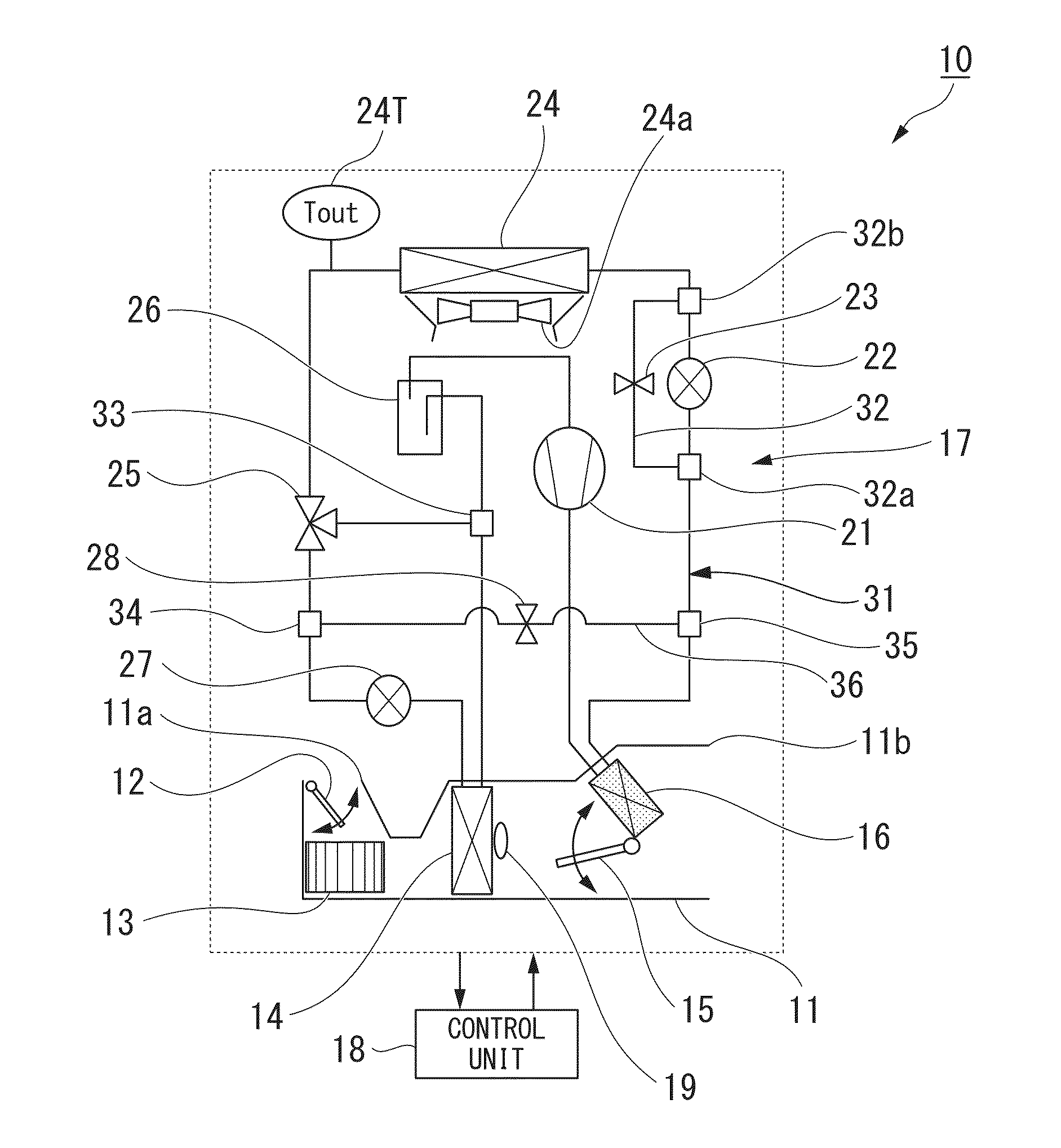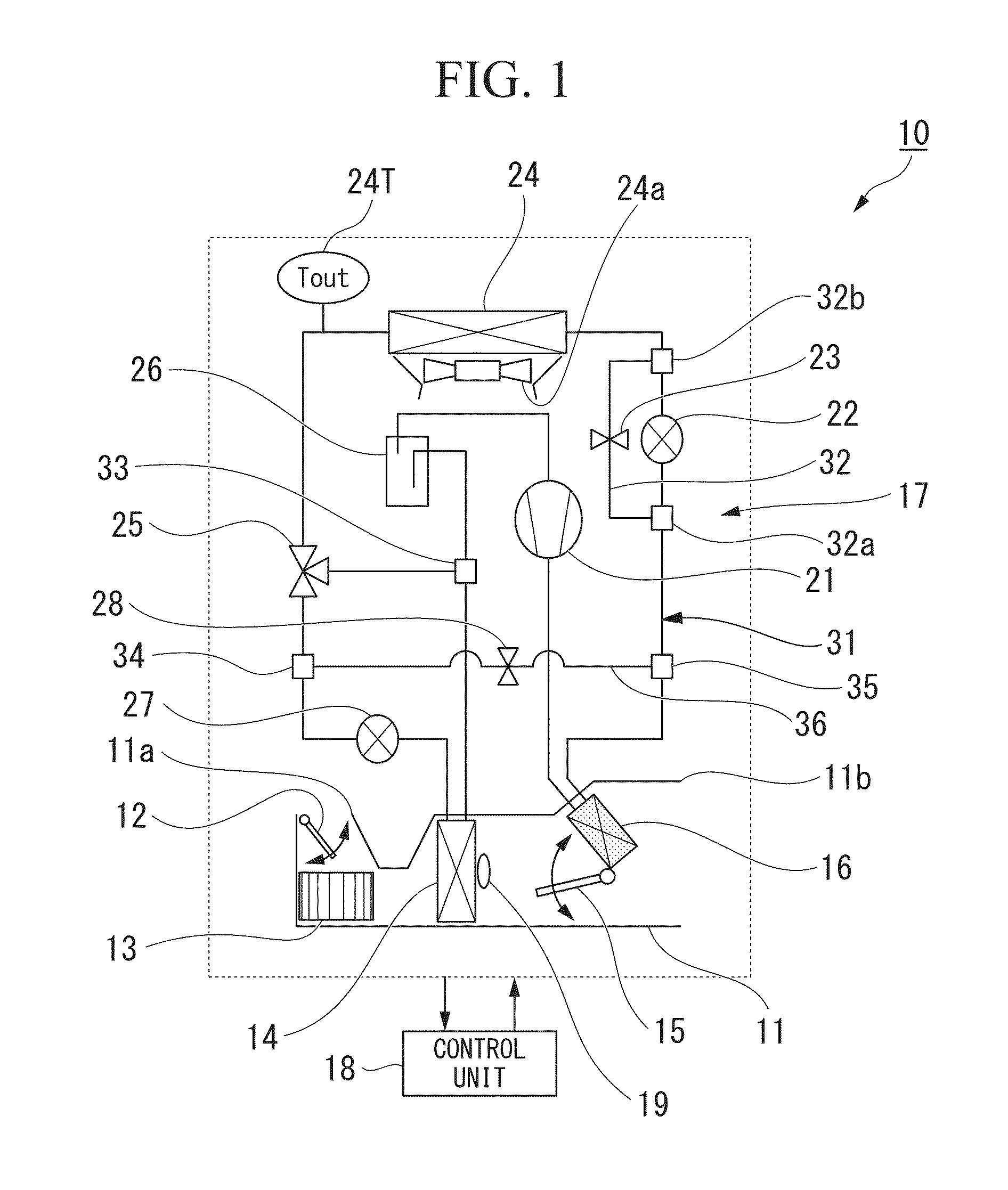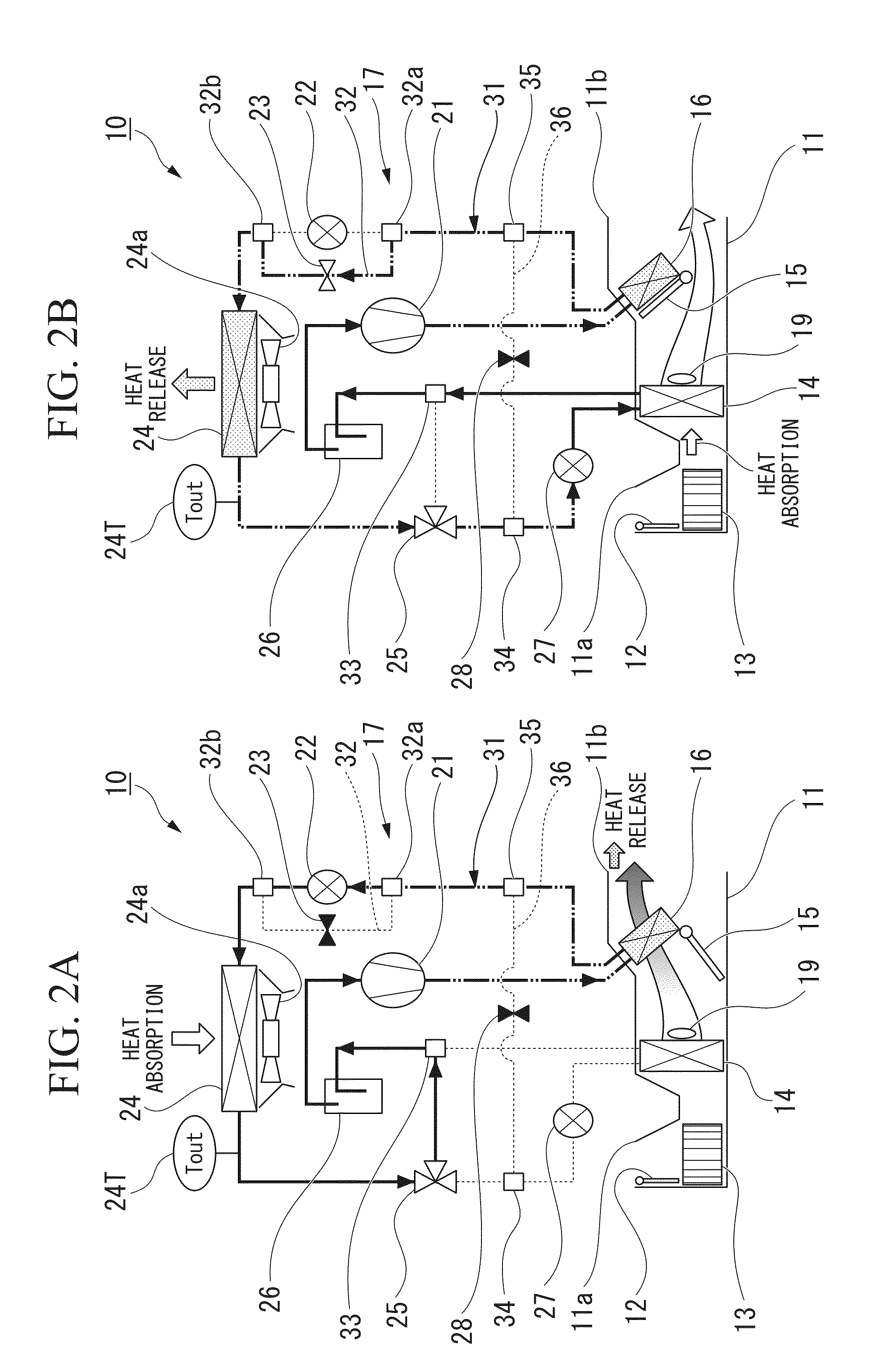Air conditioner for vehicle
a technology for air conditioners and vehicles, applied in the direction of domestic cooling devices, defrosting, applications, etc., can solve the problems of increasing the power consumption of compressors, difficult to accurately determine whether or not an external heat exchanger is working properly, and the time required to defrost an external heat exchanger is considerable, so as to reduce the travelling wind speed, reduce the amount of cold air, and reduce the effect of cold air
- Summary
- Abstract
- Description
- Claims
- Application Information
AI Technical Summary
Benefits of technology
Problems solved by technology
Method used
Image
Examples
first embodiment
(Method of Performing a Defrosting Operation in a Air Conditioner for a Vehicle: First Embodiment)
[0101]FIG. 5 is a flowchart showing a method of performing a defrosting operation in an air conditioner for a vehicle according to a first embodiment, while FIG. 6 is a timing chart for the same. In the method of performing a defrosting operation in the air conditioner for a vehicle according to the first embodiment, the control unit 18 firstly performs a defrosting cooling operation, and then subsequently performs a hot gas operation.
[0102]The method of performing a defrosting operation of the first embodiment starts from a warming mode operation state (S5).
[0103]Next, a defrosting determination is performed in order to determine whether or not frost formation has occurred on the external heat exchanger 24 (i.e., to determine whether or not defrosting is necessary) (S10).
[0104]Specifically, the external air temperature ‘Tam’ is measured by an external temperature sensor (not shown), an...
second embodiment
(Method of Performing a Defrosting Operation in an Air Conditioner for a Vehicle: Second Embodiment)
[0126]FIG. 7 is a flowchart showing a method of performing a defrosting operation in an air conditioner for a vehicle according to a second embodiment, while FIG. 8 is a timing chart for the same. In the method of performing a defrosting operation in the air conditioner for a vehicle according to the second embodiment, the control unit 18 firstly performs a hot gas operation, and then performs a defrosting cooling operation, and then subsequently performs a hot gas operation once again. Note that no description is given of portions that have the same structure as in the first embodiment.
[0127]In the same way as in the first embodiment, this routine starts from a warming mode operation state (S5), and then a defrosting determination is performed in order to determine whether or not frost formation has occurred on the external heat exchanger 24 (i.e., to determine whether or not defrost...
PUM
 Login to View More
Login to View More Abstract
Description
Claims
Application Information
 Login to View More
Login to View More - R&D
- Intellectual Property
- Life Sciences
- Materials
- Tech Scout
- Unparalleled Data Quality
- Higher Quality Content
- 60% Fewer Hallucinations
Browse by: Latest US Patents, China's latest patents, Technical Efficacy Thesaurus, Application Domain, Technology Topic, Popular Technical Reports.
© 2025 PatSnap. All rights reserved.Legal|Privacy policy|Modern Slavery Act Transparency Statement|Sitemap|About US| Contact US: help@patsnap.com



